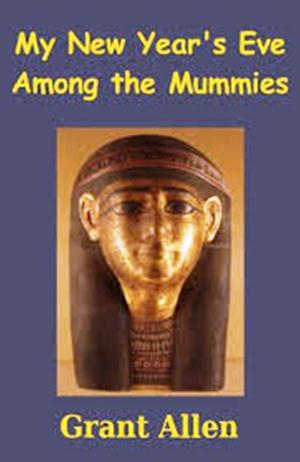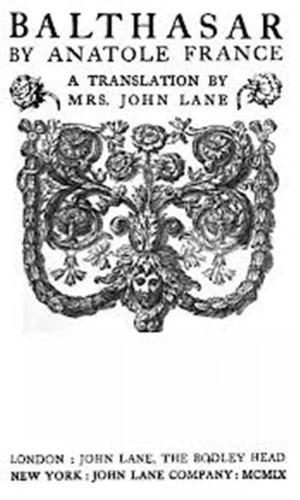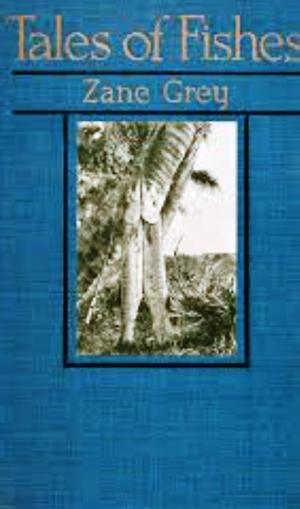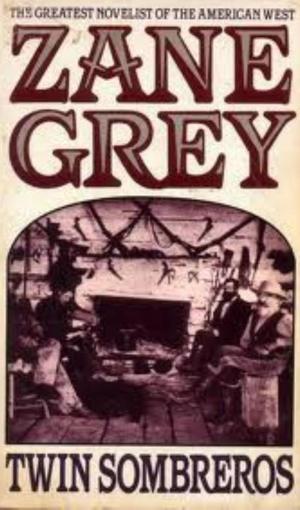| Author: | SYLVANUS COBB, Jr | ISBN: | 1230000148656 |
| Publisher: | WDS Publishing | Publication: | July 6, 2013 |
| Imprint: | Language: | English |
| Author: | SYLVANUS COBB, Jr |
| ISBN: | 1230000148656 |
| Publisher: | WDS Publishing |
| Publication: | July 6, 2013 |
| Imprint: | |
| Language: | English |
ON all hands the arms of the sons of Islam had been victorious, and the close of the eighth century, and the opening of the ninth, saw the Arabian dominion at its zenith of power and splendor. The followers of Mahomet had not only established one of the most mighty governments of earth, but they had drawn wealth and refinement, and other adjuncts of national power from conquered nations. Bagdad was the capital, and there the Caliph, Haroun al Raschid, held his court, as Commander of the Faithful, and God's Apostle on earth.
The day was closing in Bagdad, and the deep shades had already thrown themselves across the inner apartment of the market of the money-changers. At the head of the place, behind a counter more costly than the others, sat Elkader, the Syndic of those who dealt in precious metals, and changed money for percentage. He was a tall, spare man, with gray hair and gray beard, but his eyes were black as two coals. Threescore years had been given him of life, and ever since his very boyhood he had been engaged in getting money. His face was hard and cold, and even the crafty Jews, whose stalls were about him, and who worked hard for money, gazed with wonder upon the strange ingenuity with which the Syndic sometimes emptied the pockets of his spendthrift customers.
The Syndic of the money-changers looked up and saw that the day was departing, and turning to his table, he commenced to gather up the money and ingots that lay there. From a hook by his side he took a large bag made of camel's hide, and began to scrape the money into it. There was money of gold, money of silver, and many bars of pure metal direct from India. When the bag had received all the money, it was of such weight that Elkader could not move it upon the floor; much less could he lift it. In fact, it would seem that no man could raise it up, and that only a cruel man would inflict such a burden upon a mule. When the bag was secured at the mouth the Syndic turned toward the back of the market, he called name of Marouf, and thereupon there came forth a black slave, of such huge proportions, that one who knew him not would have started with fear. He was ten spans high, and as broad as an ox. He bowed before the Syndic, and awaited his pleasure.
"Take this bag and follow me," was Elkader's order.
Marouf swung the bag upon his broad shoulders as though it had been filled with feathers, and then followed his master from the market. Elkader's house was upon the bank of the Tigris, and though it looked dark and gloomy from the street, yet within it was furnished with luxuriant costliness, while the garden in the rear, which extended to the river, was one of the most beautiful in Bagdad. The Syndic entered his house, and having procured a lamp, he descended to the cellar, which was deep and spacious, and in one corner of which was a door so curiously contrived that it could not be distinguished from the rest of the wall. This door opened by a secret spring, but Marouf knew not where it was, for as soon as he had reached the cellar bottom his master set down his lamp and blindfolded him, and then taking him by the arm, he led him several times about the place by devious ways, until he came to the door. Here he touched the secret spring, and the heavy door slowly swung open, revealing a deep vault beyond, into which the Syndic led his slave. There were many sacks standing against the walls, like the one Marouf had just brought in, and all of them seemed well filled. Then on one side stood a large iron chest; it was seven spans long, four spans high, and four spans wide, and it was secured by four stout locks of solid steel.
The slave set down the bag, and then the Syndic led him away, taking care to close the door behind him. But as soon as Marouf had reached the hall above, his master returned to the cellar and opened the vault and went in. He closed the door after him, and then proceeded to unlock the iron chest, and when he had thrown back the heavy lid the rays of the lamp were flashed back from a thousand bright jewels that lay there exposed. Elkader stood a while to feast his eyes upon the immense wealth the chest contained, and then he proceeded to select certain jewels which he had come for. He took out a necklace of pearls and a necklace of rubies, a tiara of diamonds, and several costly rings for the ears and hands, besides bracelets and brooches. These he concealed within the bosom of his vest, and then he relocked the chest and went up to his own private room, where none came unless they were called. Here he placed the jewels upon a table, and then rang a bell; and shortly afterwards the door was opened, and a youth who had not seen more than twenty years of life entered. His name was Assad, and he was Elkader's slave.
ON all hands the arms of the sons of Islam had been victorious, and the close of the eighth century, and the opening of the ninth, saw the Arabian dominion at its zenith of power and splendor. The followers of Mahomet had not only established one of the most mighty governments of earth, but they had drawn wealth and refinement, and other adjuncts of national power from conquered nations. Bagdad was the capital, and there the Caliph, Haroun al Raschid, held his court, as Commander of the Faithful, and God's Apostle on earth.
The day was closing in Bagdad, and the deep shades had already thrown themselves across the inner apartment of the market of the money-changers. At the head of the place, behind a counter more costly than the others, sat Elkader, the Syndic of those who dealt in precious metals, and changed money for percentage. He was a tall, spare man, with gray hair and gray beard, but his eyes were black as two coals. Threescore years had been given him of life, and ever since his very boyhood he had been engaged in getting money. His face was hard and cold, and even the crafty Jews, whose stalls were about him, and who worked hard for money, gazed with wonder upon the strange ingenuity with which the Syndic sometimes emptied the pockets of his spendthrift customers.
The Syndic of the money-changers looked up and saw that the day was departing, and turning to his table, he commenced to gather up the money and ingots that lay there. From a hook by his side he took a large bag made of camel's hide, and began to scrape the money into it. There was money of gold, money of silver, and many bars of pure metal direct from India. When the bag had received all the money, it was of such weight that Elkader could not move it upon the floor; much less could he lift it. In fact, it would seem that no man could raise it up, and that only a cruel man would inflict such a burden upon a mule. When the bag was secured at the mouth the Syndic turned toward the back of the market, he called name of Marouf, and thereupon there came forth a black slave, of such huge proportions, that one who knew him not would have started with fear. He was ten spans high, and as broad as an ox. He bowed before the Syndic, and awaited his pleasure.
"Take this bag and follow me," was Elkader's order.
Marouf swung the bag upon his broad shoulders as though it had been filled with feathers, and then followed his master from the market. Elkader's house was upon the bank of the Tigris, and though it looked dark and gloomy from the street, yet within it was furnished with luxuriant costliness, while the garden in the rear, which extended to the river, was one of the most beautiful in Bagdad. The Syndic entered his house, and having procured a lamp, he descended to the cellar, which was deep and spacious, and in one corner of which was a door so curiously contrived that it could not be distinguished from the rest of the wall. This door opened by a secret spring, but Marouf knew not where it was, for as soon as he had reached the cellar bottom his master set down his lamp and blindfolded him, and then taking him by the arm, he led him several times about the place by devious ways, until he came to the door. Here he touched the secret spring, and the heavy door slowly swung open, revealing a deep vault beyond, into which the Syndic led his slave. There were many sacks standing against the walls, like the one Marouf had just brought in, and all of them seemed well filled. Then on one side stood a large iron chest; it was seven spans long, four spans high, and four spans wide, and it was secured by four stout locks of solid steel.
The slave set down the bag, and then the Syndic led him away, taking care to close the door behind him. But as soon as Marouf had reached the hall above, his master returned to the cellar and opened the vault and went in. He closed the door after him, and then proceeded to unlock the iron chest, and when he had thrown back the heavy lid the rays of the lamp were flashed back from a thousand bright jewels that lay there exposed. Elkader stood a while to feast his eyes upon the immense wealth the chest contained, and then he proceeded to select certain jewels which he had come for. He took out a necklace of pearls and a necklace of rubies, a tiara of diamonds, and several costly rings for the ears and hands, besides bracelets and brooches. These he concealed within the bosom of his vest, and then he relocked the chest and went up to his own private room, where none came unless they were called. Here he placed the jewels upon a table, and then rang a bell; and shortly afterwards the door was opened, and a youth who had not seen more than twenty years of life entered. His name was Assad, and he was Elkader's slave.















